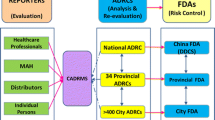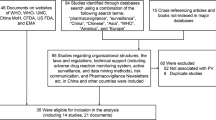Abstract
Initiatives to monitor adverse drug reactions (ADRs) exist in many countries. Information about ADRs assists in policy changes and interventions toward the safer use of medicines. The Philippines ADR monitoring program began in August 1994 with assistance from the Australian Agency for International Development (AusAID) and the Philippines Department of Health (DOH). This program is entrusted to an academic institution for implementation. The objective of this program is to promote drug safety through ADR monitoring nationally. The methods include training courses, establishing notification systems through hospital therapeutics committees, and advising DOH about problem drugs and their usage. A few hospitals started in-house notification schemes and are part of the program’s network. Reports received by the program are processed and sent to the World Health Organization (WHO) Uppsala Monitoring Centre. The program has received over 400 ADR reports; produced training videos, manuals, and newsletters for health professionals; and collaborated with health professional associations. Future plans include addressing the needs of general practitioners and consumers.
Similar content being viewed by others
References
WHO Collaborating Centre for International Drug Monitoring Guide to Participating Countries. World Health Organization: Uppsala, Sweden; Sept 1993.
Finney DJ. The design and logic of a monitor of drug use. J Chron Dis. 1965;18:77.
Ines-Cuyekeng E. Adverse drug reaction reporting, Philippine experience. Med Toxicol. 1986;1(suppl 1):99–104.
Hartigan-Go K. Adverse drug reaction monitoring: experiences in the Philippine General Hospital. Acta Medica Philippina. 1992;28(3):164–166.
Rawlins MD, Thompson JW. Pathogenesis of adverse drug reactions. In: Textbook of adverse drug reactions. Davies DM ed. Oxford, England: Oxford University Press; 1985:12–38.
Ferner R. Forensic Pharmacology. Oxford, England: Oxford University Press; 1996;28–33.
Author information
Authors and Affiliations
Rights and permissions
About this article
Cite this article
Hartigan-Go, K. Working Methods for the Adverse Drug Reaction Monitoring Program in the Philippines. Ther Innov Regul Sci 32, 85–92 (1998). https://doi.org/10.1177/009286159803200112
Published:
Issue Date:
DOI: https://doi.org/10.1177/009286159803200112




